Imagine a world where a housecat flashes a grin sharper than a bear’s, or a wild feline yawns and reveals teeth the size of your pinky finger. Sounds wild? Welcome to the jaw-dropping reality of some of nature’s most extraordinary cats! These feline wonders aren’t just cute—they’re armed with canines so massive, they’d make a grizzly jealous. Whether you’re a lifelong cat fan or just curious, journey with us through a gallery of nature’s toothy showstoppers. You’ll never look at your kitty’s little fangs the same way again!
The Saber-Toothed Smilodon: The King of Oversized Fangs
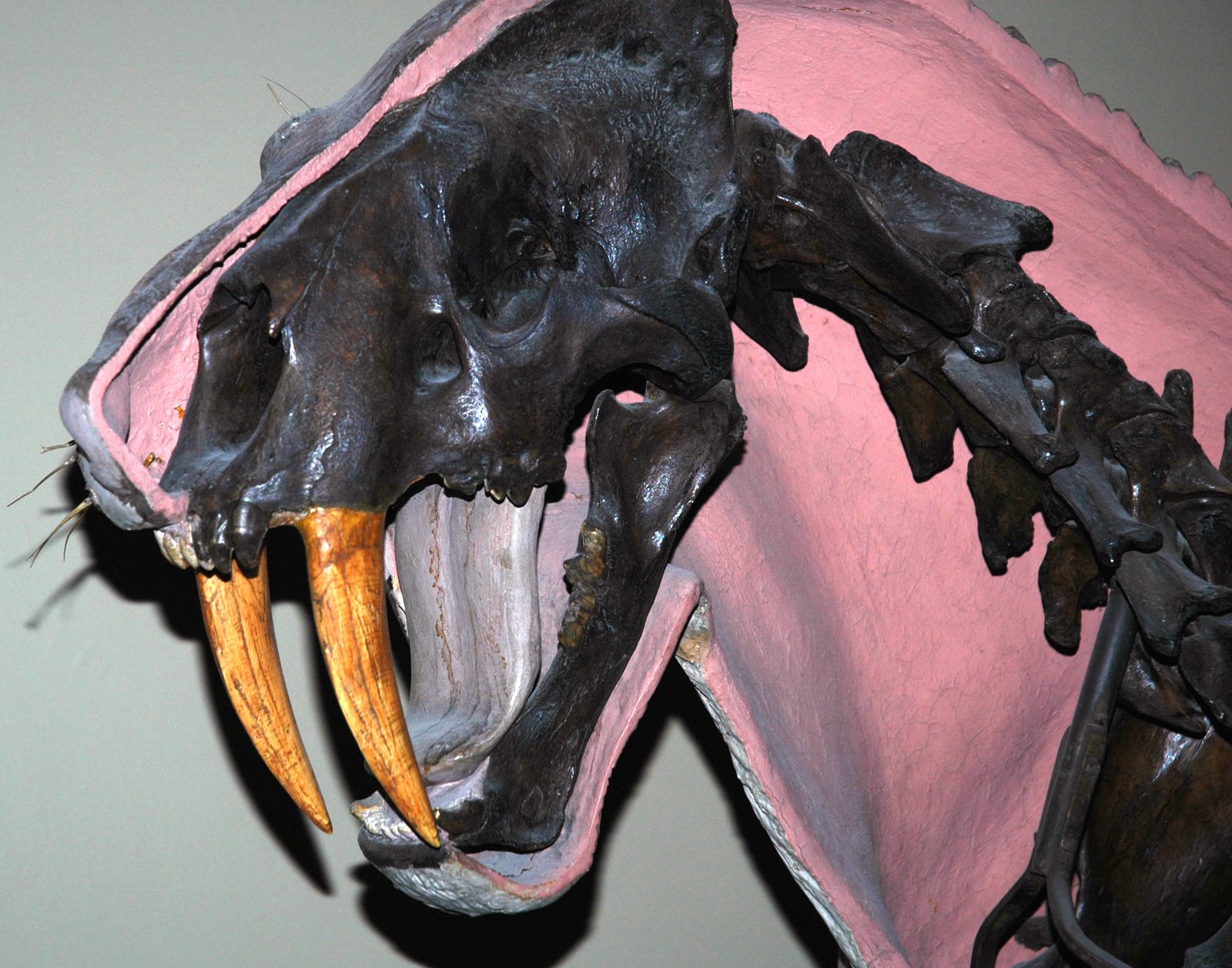
Smilodon, often called the saber-toothed tiger, was a prehistoric big cat with fangs so long they could reach over 7 inches—longer than most grizzly bear canines! These cats used their gigantic upper canines for hunting large prey, slicing through tough hides like butter. Despite their fearsome looks, Smilodons probably hunted in packs, showing surprising cooperation. It’s mind-blowing to imagine a predator so powerful and social, yet now extinct. Think of them as the ancient “lions” of their era, only with a smile that could send chills down your spine!
Clouded Leopard: The Modern-Day Saber-Tooth

Meet the clouded leopard, a living cat whose canines can be as long as a tiger’s, even though its body is much smaller. Pound for pound, these felines have the largest canine teeth of any living cat! Their jaws can open impressively wide, almost snake-like, letting them bite with deadly precision. They’re shy, tree-loving hunters, but if you catch a glimpse of their fangs during a yawn, you’ll see echoes of the ancient Smilodon. Next time someone calls their cat “fangy,” send them a photo of a clouded leopard!
Nimravids: The “False” Saber-Tooths

Long before the true saber-tooths, nimravids prowled ancient forests with their own set of jaw-dropping canines. These prehistoric cats weren’t directly related to Smilodon but developed giant, curved fangs all the same—a wild case of convergent evolution! Imagine a cat with a face built for drama, canines gleaming like daggers. Nimravids remind us that nature loves a scary smile and isn’t afraid to repeat herself. They may be gone, but their fossilized teeth still stun museum visitors today.
Caracal: The Surprising Fang Champion of the Savannah

At first glance, the caracal looks dainty, with its slender body and long, tufted ears. But take a closer look—this African wildcat packs some seriously long canine teeth for its size! Caracals use their impressive fangs to snatch birds right out of the sky, their hunts often ending with a showy display of their pearly whites. It’s a dramatic twist on the “cute cat” trope, proving that looks can definitely be deceiving in the feline world.
Jaguar: Bite Force and Fangs to Spare

Jaguars are built like tanks, with jaws and canines designed for crushing bones. Their canines are among the thickest and strongest of any big cat, perfectly suited for a hunting style that involves biting through turtle shells and skulls. Watching a jaguar in action is like seeing a living, breathing power tool—those teeth aren’t just for show! If you’ve ever wondered how a cat could take on a crocodile and win, look no further than the jaguar’s arsenal.
Panthera Atrox: America’s Ancient Fanged Giant
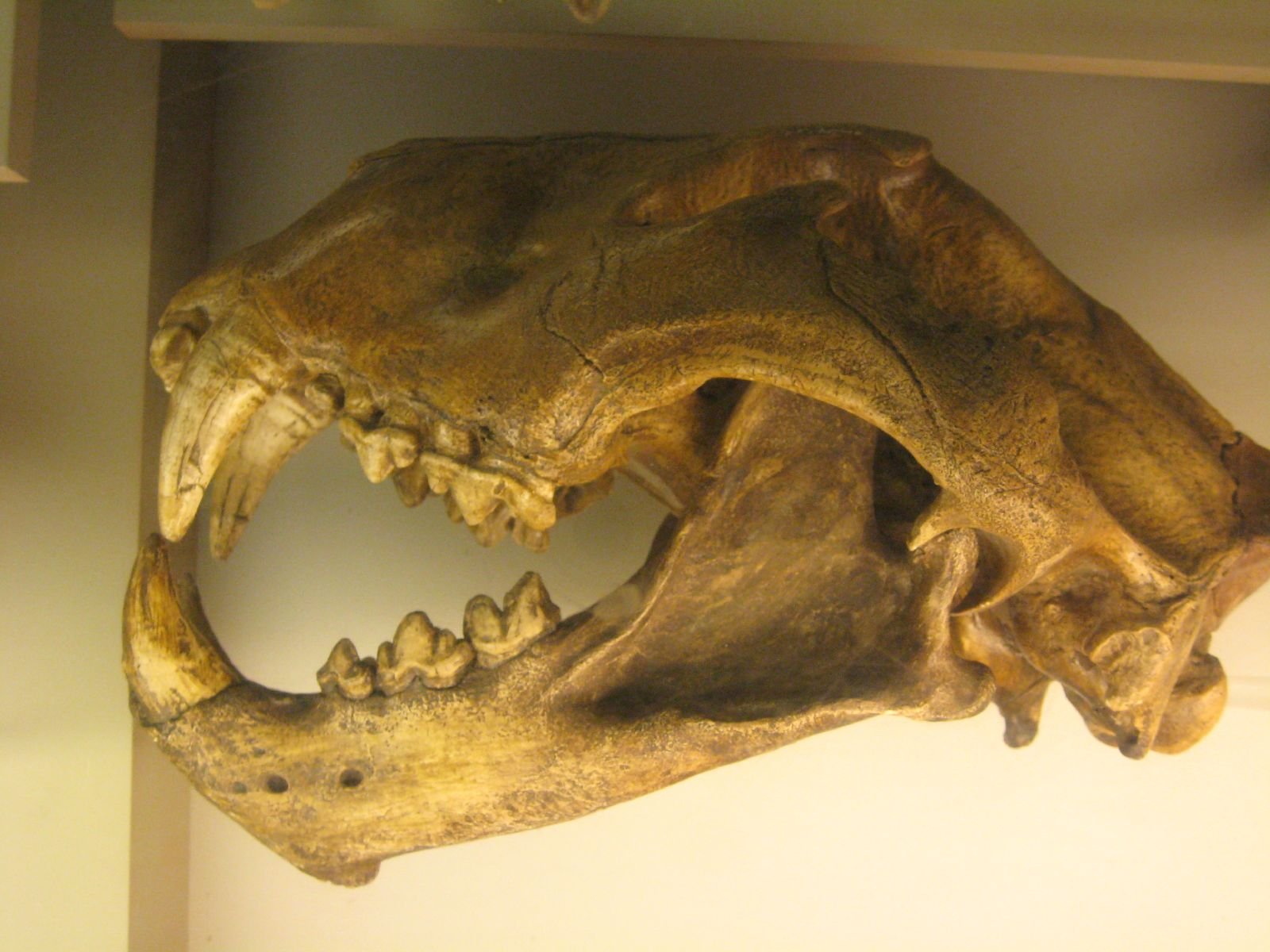
Before lions roamed the African plains, the North American Panthera atrox ruled with canines that rivaled the biggest grizzlies. This extinct “American lion” could weigh up to 1,000 pounds and sported teeth built for taking down mammoths and bison. Imagine crossing a modern lion with a prehistoric monster, and you get an apex predator whose bite could end any showdown. Their fossils are a testament to a time when big cats weren’t just big—they were colossal.
Leopard: The Stealthy Fang-Bearer

Leopards might be best known for their spots, but don’t overlook their teeth! These cats have canines that can reach up to 2 inches, letting them dispatch prey quickly and quietly. Leopards often drag their meals up trees, and those long fangs help grip slippery, wriggling dinners. It’s their secret weapon—stealth and strength, all rolled into one. If you ever catch a leopard’s yawn, you’ll see why even other predators give them space.
Asiatic Lion: The Regal Fang Show-Off

The Asiatic lion, slightly smaller than its African cousin, surprises with its impressive, slightly curved canines. These teeth aren’t just for eating—they’re a mark of status in the pride. Males often show off their canines in mock fights and social displays, flashing their pearly whites like badges of honor. It’s a reminder that for lions, teeth are as much about drama and dominance as they are about dinner.
Tiger: The Ultimate Fang-Flexer

Tigers boast the longest canines of any living cat, with some measuring over 3 inches! These massive teeth let them take down prey much larger than themselves, like water buffalo or even young elephants. Tigers also have a habit of “flehmen response,” curling their lips and showing off their fangs in a strange, almost comical face. It’s both an intimidation tactic and a way to pick up scent cues—but mostly, it’s a chance to show off those superstar teeth.
Liger: The Hybrid with Monster Chompers

When a lion and a tiger meet, the result is a liger—a giant hybrid with canines that sometimes outgrow both parents! Ligers can reach over 10 feet in length and have teeth fit for such a massive cat, making them the ultimate fang champions of the hybrid world. While ligers don’t occur in the wild, their appearance in zoos always draws a crowd, with visitors marveling at those legendary teeth and wondering what it would be like to meet one face-to-face.
Margay: Small Size, Big Bite
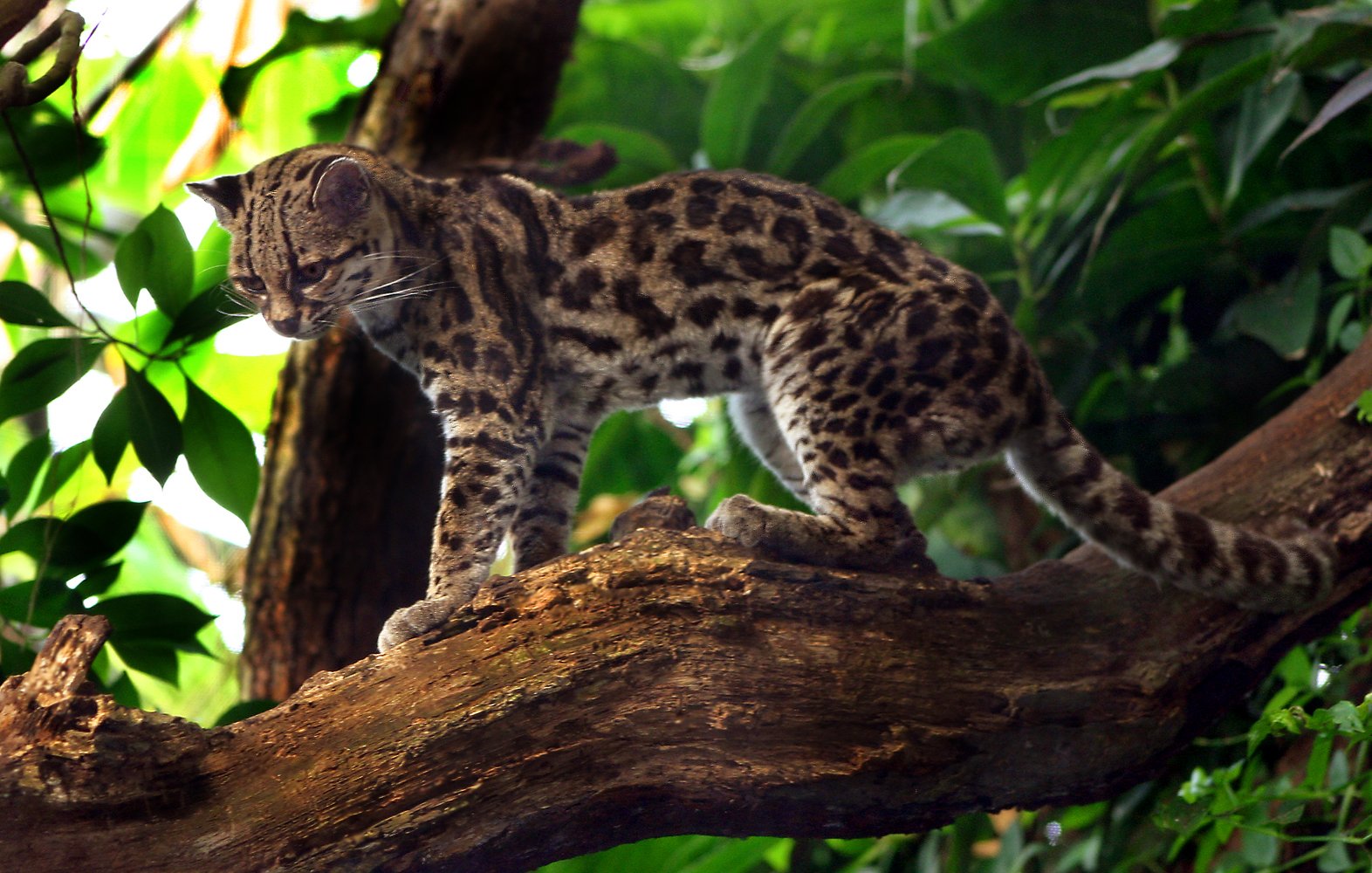
This tiny jungle cat, about the size of a housecat, has oddly long canines for its body. The margay’s teeth help it hunt birds, bats, and small monkeys in the treetops, with a bite that’s quick and precise. Watching a margay stalk through the branches is like seeing a miniature predator in action—proof that even the littlest cats can pack a serious set of fangs.
Lynx: Wild Whiskers and Fierce Fangs

Lynxes, with their big paws and dramatic ear tufts, also sport longer-than-expected canines. These help them grab snowshoe hares in slippery, snowy forests, clamping down through thick fur and flesh. Their fierce expressions, topped with a flash of white fang, are enough to make any would-be prey think twice. It’s no wonder lynxes are such mysterious, respected hunters in northern legends.
Puma: America’s Silent Stalker

The puma, or cougar, might not have the saber-tooth look, but its canines are long and sharp, ideal for a solitary ambush hunter. Pumas use their teeth with surgical precision, preferring stealth over brute force. Those fangs, combined with powerful jaws, let them take down deer, elk, or even livestock in a single bound. It’s a silent, shadowy approach that’s just as effective as any flashy saber.
Serval: The African Grassland’s Toothpick Specialist

With its extra-long legs and oversized ears, the serval looks almost cartoonish—but check out those canine teeth! Servals use their fangs to spear rodents and birds hiding in thick grass. Their toothy grins add to their quirky, playful personalities, making them a favorite among wildlife enthusiasts. It’s like seeing a housecat with a set of steak knives!
Eurasian Lynx: Europe’s Fanged Phantom

The Eurasian lynx is the largest lynx species, and its canines are perfectly suited for tackling roe deer and hares. Their hunting style is all about patience and power, relying on a sudden rush and a deep bite. The sight of a lynx baring its fangs in the wild is rare, but unforgettable—like catching a ghostly predator mid-prowl.
Fishing Cat: The Water-Loving Fang Fanatic

Unlike most cats, fishing cats love water, and their long canines help them grab slippery fish and frogs. These teeth are sharp enough to pierce scales, but also gentle enough for delicate handling. Watching a fishing cat at work is a wild mix of grace and power, all wrapped up in a wet, whiskered package. Who knew fishing could look so fierce?
Snow Leopard: Mountain Majesty with a Fearsome Smile
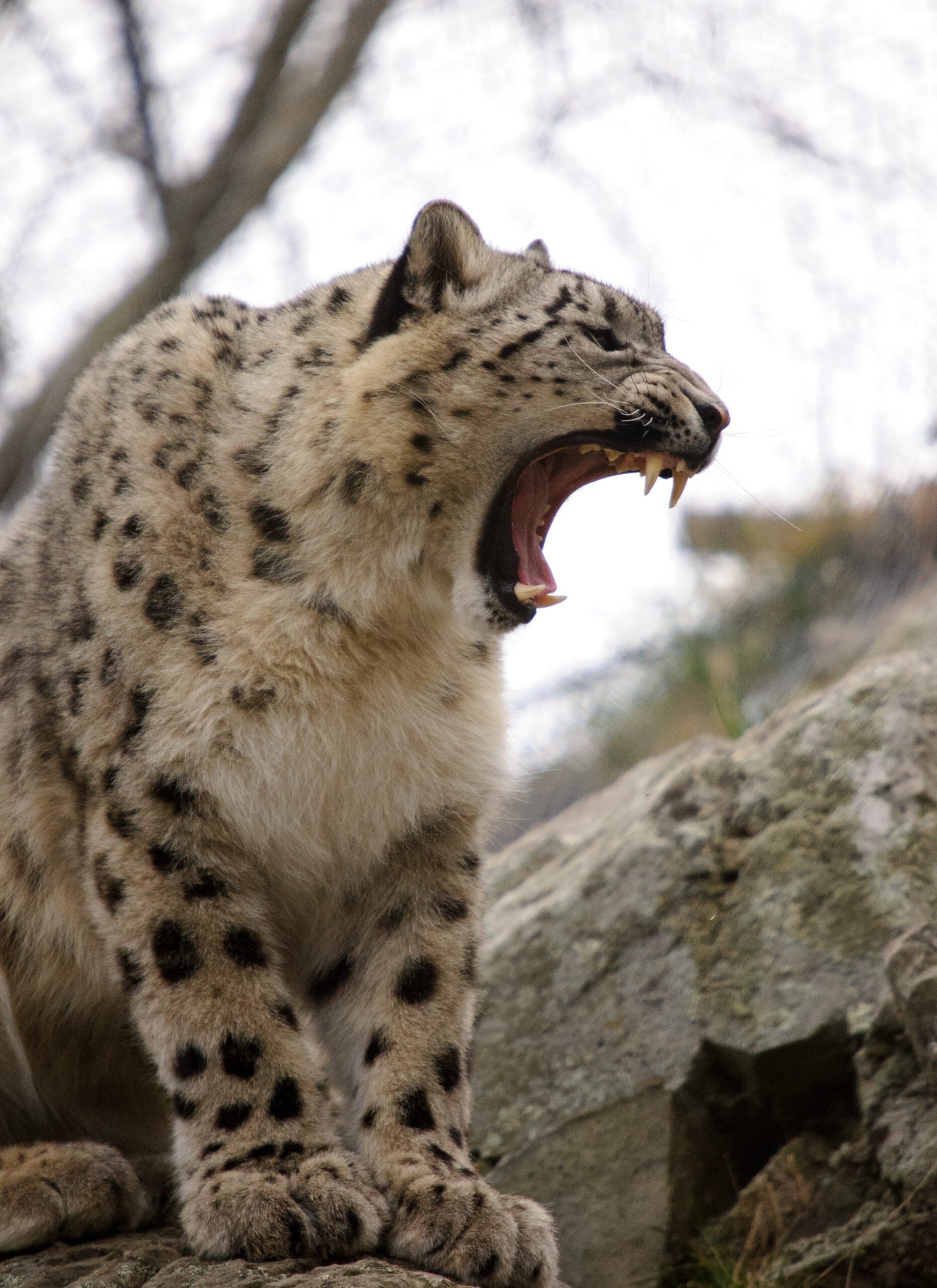
High up in the Himalayas, snow leopards reveal their long, curved canines when they yawn or snarl. These teeth are crucial for holding onto mountain goats and sheep on rocky cliffs—a task that demands both strength and precision. Their ghostly appearance, paired with a flash of fang, gives them an almost mythical aura. It’s easy to see why they’re called “ghosts of the mountains.”
Cheetah: Speed Demon with Sleek Slicers

Cheetahs might be built for speed, but their canines are surprisingly long and thin, perfect for a quick, killing bite. These teeth help them suffocate prey fast, minimizing injury during their high-speed hunts. Cheetahs don’t need brute force; their fangs are all about efficiency, making them the race cars of the cat world—sleek, sharp, and ready for action.
Pallas’s Cat: The Fluffy Fang Surprise

With its round face and thick fur, the Pallas’s cat looks like a grumpy stuffed animal. But open its mouth, and you’ll see long, narrow canines, perfect for snatching small rodents in the harsh Mongolian steppes. It’s a wild contrast—adorable on the outside, but all business when it comes to feeding time. Don’t let the fluff fool you!
Ocelot: Jungle Beauty with a Wicked Bite

Ocelots are famed for their stunning fur, but their canines deserve the spotlight too. These teeth help them tackle everything from monkeys to reptiles, and their hunting style is all about agility and ambush. A flash of fang is usually the last thing their prey sees. It’s a reminder that beauty and danger often go hand in hand in the animal kingdom.
Black Panther: Shadowy Hunter with a Toothy Grin

A black panther is actually a melanistic leopard or jaguar, and their fangs are just as impressive as their spotted relatives. In the moonlight, a panther’s gleaming canines stand out against its dark fur, making them look even more mysterious. They’re the ultimate stealth hunters, and those fangs are their calling card in the night.
Rusty-Spotted Cat: The Tiny Terror with Needle-Like Canines

The rusty-spotted cat is the smallest wild cat in the world, but its canines are needle-sharp and surprisingly long for its petite size. These teeth are perfect for snatching insects, small lizards, or birds in the Indian jungle. It’s proof that you don’t have to be big to have a bite worth bragging about!
Sand Cat: Desert Dweller with Dagger Teeth
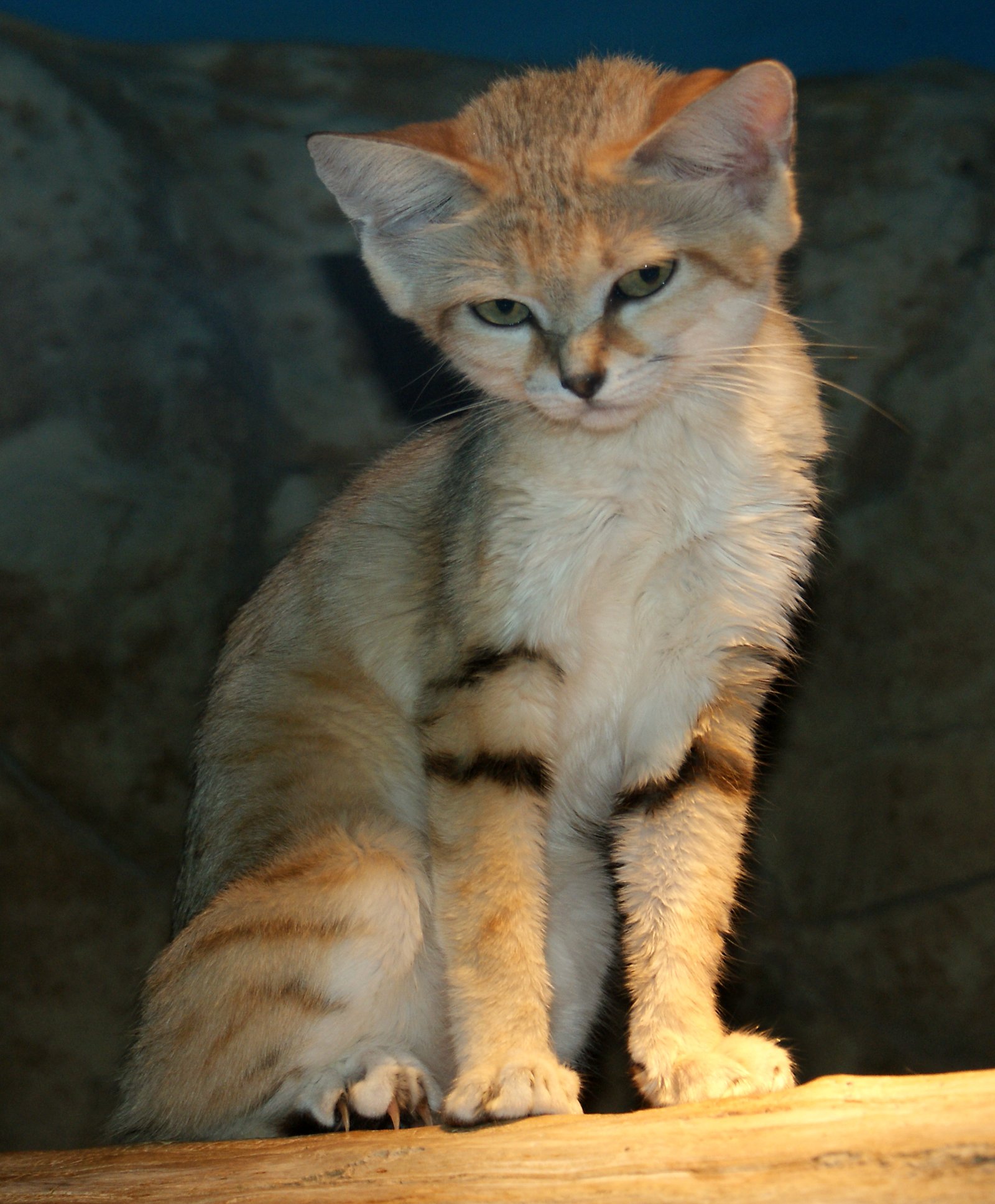
Living in harsh, sandy deserts, the sand cat uses its long, sharp canines to hunt rodents and reptiles beneath the surface. These teeth help it survive in one of the planet’s toughest environments. With their wide, flat heads and toothy grins, sand cats are the ultimate desert survivors—tiny, tough, and always ready to pounce.
Jungle Cat: Swamp Lurker with an Impressive Set of Chompers

The jungle cat, found near rivers and swamps in Asia, has robust, pointed canines that give it an edge in catching fish, frogs, and birds. Their hunting technique is about stealth and speed, with a bite that means business. If you spot one yawning, those teeth are a sharp reminder of its wild roots.
Flat-Headed Cat: The Riverbank Fang Specialist
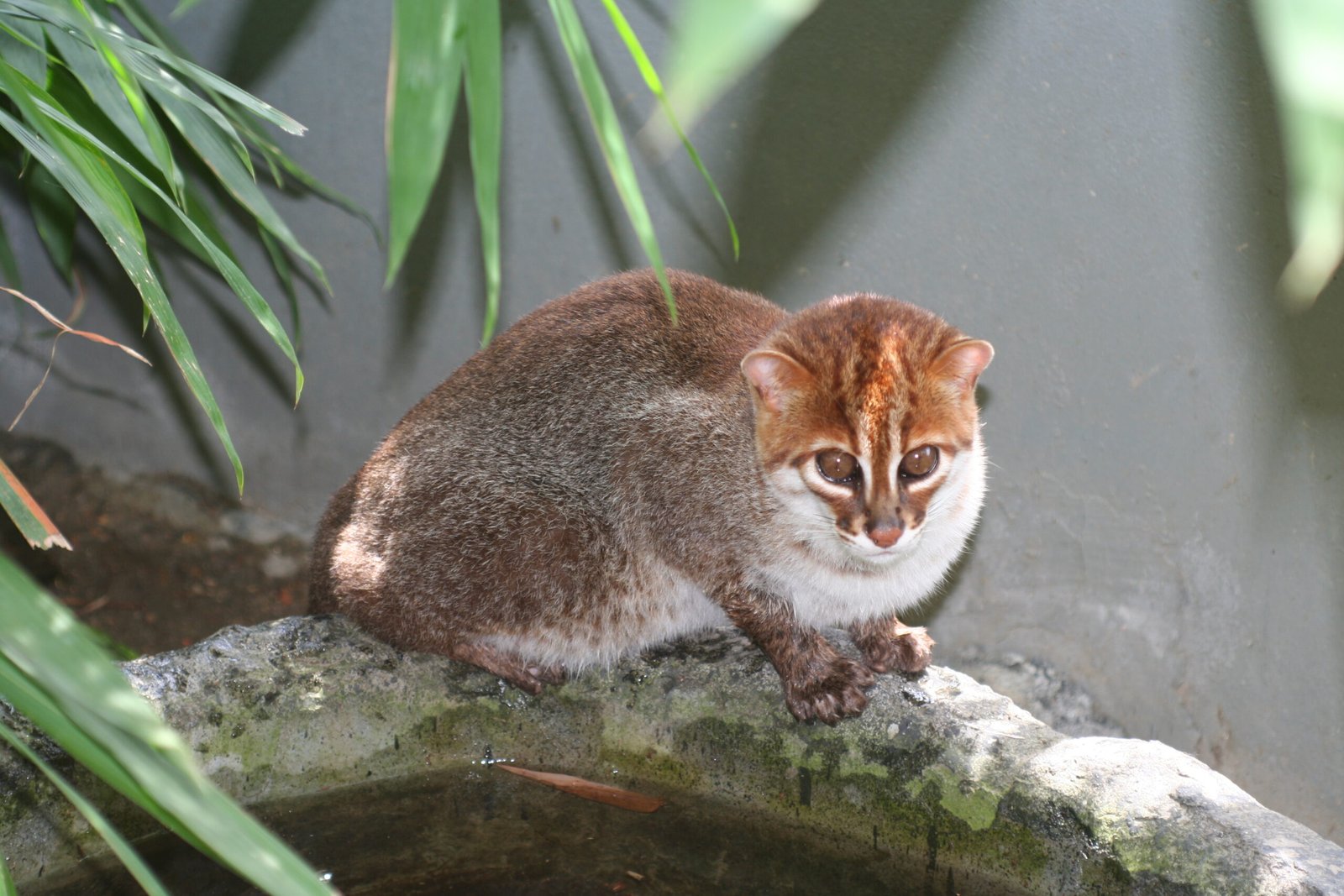
This rare Southeast Asian feline sports long, slender canines that help it hunt along riverbanks. Flat-headed cats have a unique skull shape to accommodate their impressive teeth, letting them grip slippery prey with ease. They may look odd, but their toothy innovation is a winning formula for life near the water.
Which of these cats would you love to meet?

Suhail Ahmed is a passionate digital professional and nature enthusiast with over 8 years of experience in content strategy, SEO, web development, and digital operations. Alongside his freelance journey, Suhail actively contributes to nature and wildlife platforms like Feline Fam, where he channels his curiosity for the Feline into engaging, educational storytelling.
With a strong background in managing digital ecosystems — from ecommerce stores and WordPress websites to social media and automation — Suhail merges technical precision with creative insight. His content reflects a rare balance: SEO-friendly yet deeply human, data-informed yet emotionally resonant.
Driven by a love for discovery and storytelling, Suhail believes in using digital platforms to amplify causes that matter — especially those protecting Earth’s biodiversity and inspiring sustainable living. Whether he’s managing online projects or crafting wildlife content, his goal remains the same: to inform, inspire, and leave a positive digital footprint.






